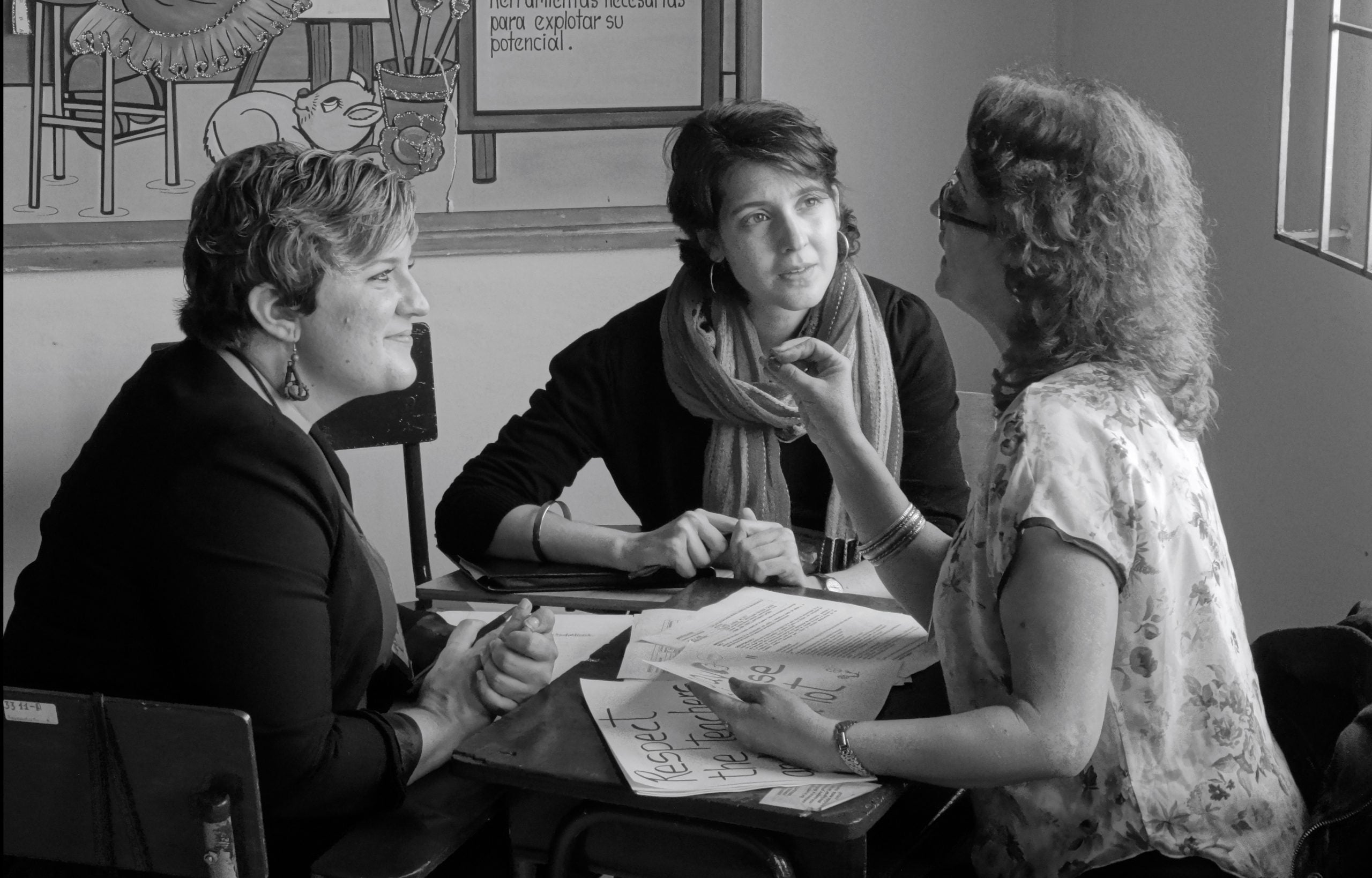In February, eight fellows from all over Central and South America gathered in Manizales, Colombia for a week-long conference. The fellows met with Regional English Language Officers, U.S. Embassy officials, and local teachers to discuss best practices and come up with ideas for the remainder of their fellowships.
The first half of the conference was dedicated to professional development and sharing best practices. Fellows led presentations and discussions for one another on topics such as:
- finding and using great resources in the classroom (e.g. Forum Magazine)
- creating projects that are sustainable after the fellow leaves
- using technology in the classroom

The second half of the conference was practical. The fellows went into a local public school and worked with English teachers on designing and implementing an effective lesson. The next day, they led a ELT workshop for over 100 school teachers in the region. At the workshop, the fellows gave presentations on all aspects of English language teaching, from using games int he classroom to teaching English through American cultural lessons.
Throughout the conference, the fellows got to experience the rich culture of Colombia. Manizales is located in the heart of the coffee region, so the fellows had a chance to tour a coffee farm and hike in the mountains as well as explore the famous Bolivar Plaza downtown.
To see more pictures from the conference, please click on one of the photos.

